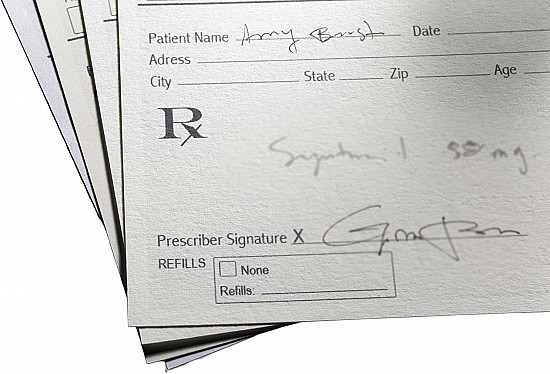A new Alzheimer's drug has been approved. But should you take it?

On June 7, 2021, the FDA granted accelerated approval to aducanumab (brand name Aduhelm), the first drug in 18 years for Alzheimer's disease. Since then the FDA has modified the original language of the approval to recommend that it only be used in certain patients with mild cognitive impairment or early Alzheimer's disease.
Concerns over the FDA approval of Aduhelm have led to further investigation into its safety, effectiveness, and cost. Some insurers are declining to cover it and some medical centers have decided not to prescribe it.
How does the drug work?
Aducanumab (brand name Aduhelm) is a monoclonal antibody engineered in a laboratory to stick to the amyloid molecule that forms plaques in the brains of people with Alzheimer's. Most researchers believe that the plaques form first and damage brain cells, causing tau tangles to form inside them, killing the cells. Once aducanumab has stuck to the plaque, your body's immune system will come in and remove the plaque, thinking it's a foreign invader. The hope and expectation are that, once the plaques are removed, the brain cells will stop dying, and thinking, memory, function, and behavior will stop deteriorating.
Who is a candidate for Aducanumab?
Based upon the clinical trials in which it was studied, the drug can be potentially considered for use in individuals with early-stage Alzheimer's disease. This means individuals who have Alzheimer's in its mild cognitive impairment or mild dementia stage. Individuals in this early stage of Alzheimer's may be able to function normally, or they may require a little bit of help with complicated activities like paying bills, grocery shopping, preparing meals, or balancing their checkbook. Individuals who need help with dressing, bathing, or other basic activities would be beyond the early stage and the drug would not be indicated for them.
Note that not everyone with mild cognitive impairment or mild dementia has Alzheimer's disease. There are other causes of these problems as well. To determine if Alzheimer's is present, you need to get either an amyloid PET scan or a lumbar puncture to be sure you have the amyloid plaques of Alzheimer's. Currently, a lumbar puncture is generally covered by insurance, but an amyloid PET scan (costing approximately $5,000) is not.
How do you take the drug and is it safe?
To take the drug, you need an intravenous infusion every four weeks — forever. Thirty percent of those who took the drug had a reversible swelling of the brain, and more than 10% had tiny brain bleeds. These side effects need to be watched closely by an expert neurology/radiology team who understand how to monitor for these events and know when to pause or stop the drug.
How much does it cost and how soon can I get it?
Biogen, the company that makes aducanumab, estimates its cost at $56,000 per year. It is not yet clear whether Medicare, Medicaid, or private insurance companies will pay for this medication. In its press release, Biogen noted that they are working on an agreement with the Veterans Health Administration to cover this medication for veterans enrolled in VA healthcare. Aducanumab is not currently available, but the company is working to make the drug available quickly, perhaps in a few months.
But does the drug work?
In a prior blog post I reviewed the publicly available data and the daylong FDA hearing on aducanumab. In a nutshell, there were two large clinical trials to assess effectiveness, side effects, safety, and how the drug might be used in clinical practice. One of the studies was positive, meaning that the drug worked to slow down the decline of thinking, memory, and function that is usually impossible to stop in Alzheimer's. The other large study was negative. In my view — and that of the FDA advisory panel — these results mean that we don't know if the drug works or not.
Another factor to consider is that the potential benefit — if the drug works as well as it did in the positive study — was fairly small. Looking at the two objective measures, in the positive trial, the high dose made a 0.6-point change on the 30-point Mini-Mental State Examination. On the 85-point Alzheimer's Disease Assessment Scale–Cognitive Subscale-13, the high dose made a 1.4-point change.
Discuss with your doctor
Should you or a loved one take aducanumab? You should discuss this decision with your doctor. Because we don't know if aducanumab works or not, deciding to take it is similar to deciding to participate in a clinical trial. As mentioned above, the known side effects are that 30% of people experienced reversible brain swelling and more than 10% had tiny brain bleeds. Although it does clear amyloid plaques from the brain, we don't know if it will slow down the dementia or not.
Clarity in the future
Part of the FDA's approval of aducanumab requires Biogen to conduct an additional study to try to determine if it really works. So, we may have more clarity in the future. However, this additional study will likely take three to four years, and thus its results will be too late for those trying to decide today whether to take the medication.
What everyone can do today
I am hopeful that this medication will work to slow Alzheimer's and reduce the suffering it causes individuals and their families. We should remember that the other FDA-approved medications for Alzheimer's can also be helpful (such as donepezil, galantamine, and rivastigmine), as can controlling blood pressure, engaging in aerobic exercise, eating a Mediterranean menu of foods, staying socially active, keeping a positive attitude, and using memory strategies.
About the Author

Andrew E. Budson, MD, Contributor; Editorial Advisory Board Member, Harvard Health Publishing
Disclaimer:
As a service to our readers, Harvard Health Publishing provides access to our library of archived content. Please note the date of last review or update on all articles.
No content on this site, regardless of date, should ever be used as a substitute for direct medical advice from your doctor or other qualified clinician.
















